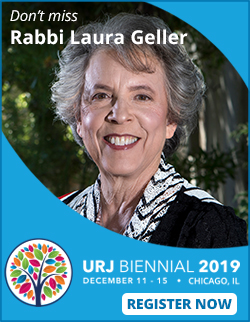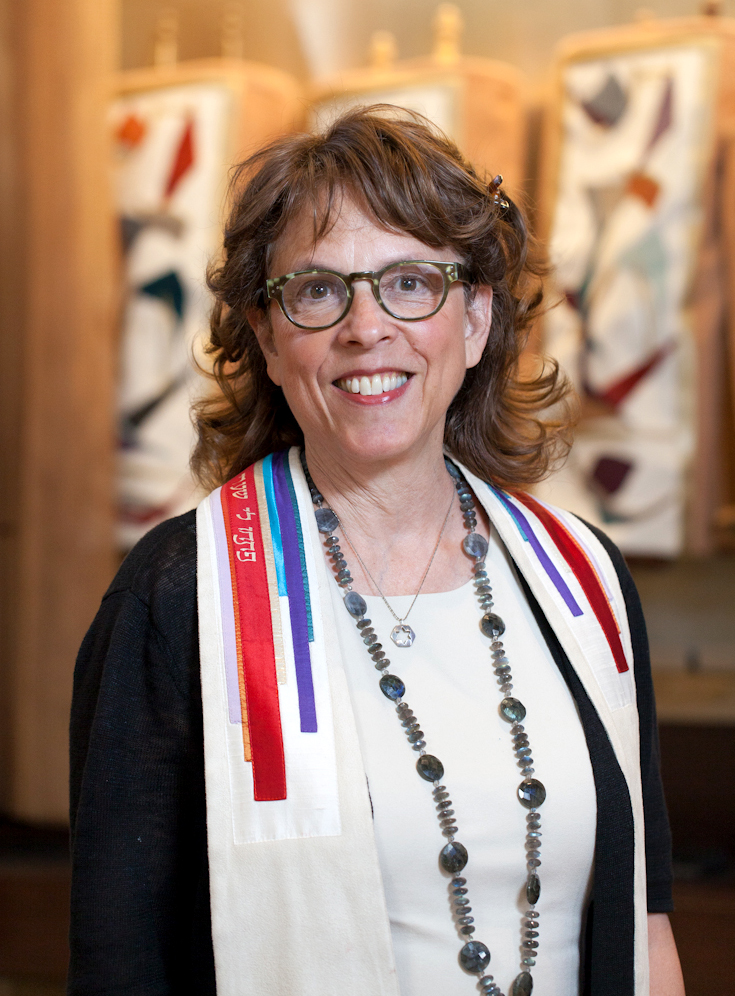 In its brief 40 verses, Parashat Nitzavim immediately presents us with tensions between confidence and condemnation, promise and punishment, and ultimately, between humility and hubris. Throughout the text of these two compact chapters—Deuteronomy 29 and 30—Moses consistently oscillates between inspiring the Israelites toward their future and forewarning them about their inherent (and perhaps inevitable) flaws.
In its brief 40 verses, Parashat Nitzavim immediately presents us with tensions between confidence and condemnation, promise and punishment, and ultimately, between humility and hubris. Throughout the text of these two compact chapters—Deuteronomy 29 and 30—Moses consistently oscillates between inspiring the Israelites toward their future and forewarning them about their inherent (and perhaps inevitable) flaws.
Much of the language in this third and last oration of Moses rouses the people before him to confidence and promise, and to inspiration and importance. For example:
Inclusivity and relationship
“You stand this day, all of you, before the Eternal your God—you tribal heads, you elders, and you officials, all the men of Israel, you children, you women, even the stranger within your camp, from woodchopper to water drawer…” (Deut. 29:9-10)
Forgiveness and prosperity
“The Eternal your God will restore your fortunes and take you back in love.” (Deut. 30:3)
Ownership and accessibility
“Surely, this Instruction which I enjoin upon you this day is not too baffling for you, nor is it beyond reach… No, the thing is very close to you, in your mouth and in your heart…” (Deut.30:11, 14)
Security and fulfillment
“You shall have life and shall long endure upon the soil that the Eternal swore to your fathers Abraham, Isaac, and Jacob, to give to them.” (Deut. 30:20)
And yet, consistently laced within these stirring assurances are words of condemnation and consequence.
Consequence and punishment
All nations will ask, "Why did the Eternal do thus to this land?...They will be told, "Because they forsook the covenant that the Eternal, God of their ancestors, made with them…they turned to the service of other gods and worshiped them,…so the Eternal was incensed at that land and brought upon it all the curses recorded in this book. (Deut. 29:23-26)
Warning and consequence
But if your heart turns away and you give no heed, and are lured into the worship and service of other gods, I declare to you this day that you shall certainly perish… (Deut. 30:17-18)
The structure outlined below illustrates both the interplay and the regular pacing of verses that encourage the Israelites and verses that sanction them for their future misdeeds.
Encourage Deut. 29:9-14 Inclusivity of the Covenant
Forewarn Deut. 29:15-28 Warnings and Consequences
Encourage Deut. 30:1-10 Forgiveness and Renewal
Encourage Deut. 30:11-16 Accessibility of the Covenant
Forewarn Deut. 30:17-18 Warnings and Consequences
Encourage Deut. 30:19-20 Promise of Life and Covenant
One unique aspect of Nitzavim and the portion’s emphasis on the conditional covenant is a verse that introduces an additional dimension to the conversation displayed in the structure above.
“When hearing the words of these sanctions, such a one may imagine a special immunity, thinking, ‘I shall be safe, though I follow my own willful heart’—to the utter ruin of moist and dry alike.” (Deut. 29:18)
Here, the Torah cautions us not only about forbidden action, but also about the intention and the internal thought process that can lead to transgression. The language of the verse itself is slightly cryptic and confusing, particularly the outcome identified in the final phrase—“to the utter ruin of moist and dry alike.” What will be the result of an individual choosing to “follow [her] own willful heart”? Many of our traditional commentators are divided in how to decipher this verse (Deut. 29:18):
God will therefore punish this individual for both intentional and unintentional sins. (Rashi)
The sinful appetites of this person will only grow. (Nachmanides)
This individual will continue piling guilt upon guilt while thinking, “I will survive through the merit of the righteous; they are many, whereas I am just a single sinner.” (Ibn Ezra)
“The irrigated plants will be swept away with the dried-out ones.” This person feels that if the community has sinned and God will punish them, it makes no difference that he adds a few extra sins. (Chizkuni)
The tone of the verse and the various interpretations of its stated penalty reveal an alert against overconfidence, against an arrogance that separates this individual from the community and their collective fate. In the verse itself, the individual considers himself “immune” from the sanctions—separate from everyone else; according to Ibn Ezra, this person believes that he can sin because everyone else is righteous—again, a separation. And Chizkuni advocates that this individual does not believe that his actions impact the inevitable shared punishment of the congregation—a separation from the idea of shared responsibility for the community. In other words, Deuteronomy 29:18 appears to find most distasteful not any particular action of this identified offender, but rather the hubris that leads to sinful behavior—the idea that this person imagines him or herself above and apart from everyone else.
Given some of the personally empowering statements found in this Torah portion, how do we balance these two sentiments against each other? How do we hold together the idea that Torah is ours to own—not “too baffling,” “beyond reach,” and indeed “very close…in [our] heart to observe it”—with the notion that we must beware “[our] own willful heart” lest we thrust ourselves into the realm of superiority and self-importance. This tension between hubris and humility is constant and consistent throughout our tradition. Many of us are familiar with the well-known saying attributed to Rabbi Bunim of P'shiskha, an early 19th-century leader of Chasidic Judaism in Poland, who contrasts two Jewish teachings—one from Mishnah Sanhedrin 4:5 and one from Genesis 18:27:
“Everyone must have two pockets, with a note in each pocket; one should read: ‘For my sake was the world created,’ and the other should read: ‘I am but dust and ashes.’” (see Martin Buber, Tales of the Hasidim: Later Masters [NY:Schoken Books, 1947], pp. 249–250)
This week, on this Shabbat before Rosh HaShanah, this tension becomes even more pronounced, as we attempt to come to terms with our failings while also struggling to acknowledge that we are worthy of forgiveness by those around us and by God.
While this tension runs throughout our entire High Holiday liturgy, I believe that one of the most pronounced moments of this dichotomy occurs during the dramatic recitation of the Great Aleinu. The Great Aleinu is a text with which many of us are extraordinarily familiar. Every Shabbat service ends with the words of the Aleinu, and the language is unchanged for the High Holidays:
Ours is the duty to praise the All-Sovereign, to honor the Artist of Creation, who made us unique in the human family, with a destiny all our own. For this we bend our knees and bow with gratitude before the Sovereign Almighty—Monarch of All—the Wellspring of holiness and blessing. (Mishkan HaNefesh (Rosh HaShanah) [NY: CCAR, 2015], p. 202)
The drama of this moment comes from the choreography. Traditionally, only on Rosh HaShanah and Yom Kippur, the cantor or shaliach tzibur bows not just at the waist as on Shabbat, but all the way down to the floor. And herein lies the inherent conflict. At the very moment we affirm our exceptionality, lifting ourselves with words of uniqueness and extraordinary destiny, we also bring ourselves physically low, as if to inhabit both notes in our pockets at the same time. With this one action, we physically express the essential theme of the Days of Awe and the implicit theme within Parashat Nitzavim: “We are worth everything, but we are not everything.”
The power of the Great Aleinu, and ultimately one of the core themes of Nitzavim, is that the two human dimensions of hubris and humility must exist simultaneously at all times: they equalize and offset each other, helping to prevent the intrinsic danger of lingering in either for too long. Inherent within the moments of promise are the concurrent values of hubris and humility. We feel the uplift of inclusion expressed in Deuteronomy 29:9-10, while also recognizing our individual smallness in the face of our great horizontal and vertical community. We cherish the empowerment of Deuteronomy 30:11-14, while also feeling the immensity of the responsibility that is Torah. Nitzavim, with its vacillating declarations and its particular warning against unchecked self-importance, reminds us that the challenge is not to choose which pocket is appropriate at any given moment, but to know that both outlooks are necessary in every moment—a constant convergence of greatness and gratitude, majesty and modesty, and hubris and humility.
Cantor Elizabeth Sacks is the senior cantor at Temple Emanuel in Denver, CO.
 In the beginning of Parashat Nitzavim, we read:
In the beginning of Parashat Nitzavim, we read:
“You stand this day, all of you, before the Eternal your God—your tribal heads, your elders, and your officials, all the men of Israel, your children, you women, even the stranger within your camp, from woodchopper to water drawer—to enter into the covenant of the Eternal your God…” (Deut. 29:9)
As Cantor Sacks notes, Moses’ language in this section, “rouses the people before him to confidence and promise, and to inspiration and importance.”
Moses is an old man when he speaks the words of this Torah portion to all the Israelites just as they are about to enter Canaan. It’s his last chance to tell the people what they need to know in order to make it become the promised land. His message is clear: everyone needs to be there. Everyone. Men, women, children, the old, the young old, the powerful, the stranger/immigrant, the leaders, the workers. No one is invisible. No one is unimportant. No one is isolated.
It is a powerful vision of community, one so important that this is the section of Torah we read on Yom Kippur morning. We can be very proud of our Reform Movement for all the work it is doing to become more inclusive. Fifty years ago, Jewish feminism changed Judaism by bringing women’s experience from the margins to the center. That consciousness created a bigger Jewish tent, enabling us to ask what other groups have been marginalized and to find ways to welcome them: LGBTQ Jews, Jews of color, differently abled Jews, poor Jews, immigrant Jews, Jews by choice… Our community has been and continues to be enriched by its diversity and its inclusiveness.
We can be proud, and yet we still have work to do to make this vision of community true.
Just ask anyone over 60. I’m 69, a boomer. Social science research says that my cohort is living 31 years longer than our grandparents did. That’s 31 years, not tacked on to the end of our life but occurring just after the middle. It is a new stage, between midlife (when we built careers and raised families), and frail old age. And it’s a stage that is often ignored by the Jewish community. The truth is, the Jewish community pays a lot of attention to families with young children, and to millennials… and it is attentive to those in frail old age, but it doesn’t seem to notice people in this new stage.
Several years ago, our synagogue realized that people often left the synagogue after their kids grew up because they felt the synagogue wasn’t addressing their needs. So we organized a listening campaign where we talked in small gatherings in people’s homes with over 250 congregants from the ages of 55 to the late 70s about what mattered to them at this stage of their lives. We asked what kept them up at night and what got them up in the morning. Four fears emerged: becoming invisible, becoming isolated, being without purpose, and being dependent. And four needs emerged: to find ways of giving back, to create community that would be there for them as they grew older, to find ways to deepen their spirituality, and to respond to concerns about themselves and people they loved, particularly about end of life issues. And they asked that our synagogue help them find ways to do all this.
 On Yom Kippur, we sing Sh’ma Koleinu, “Hear Our Voice,” with its poignant plea: Al tashlicheinu l’eit zikna, “Do not cast us aside when we are old.” On Yom Kippur we notice that we are all, no matter what our age, growing older. Perhaps it is time for us as a Jewish community to begin to think together about what eit zikna could mean. Zikna comes from the root zakein, the word that means “old.” But another Rabbinic interpretation sees it as shorthand for “one who has acquired wisdom.”
On Yom Kippur, we sing Sh’ma Koleinu, “Hear Our Voice,” with its poignant plea: Al tashlicheinu l’eit zikna, “Do not cast us aside when we are old.” On Yom Kippur we notice that we are all, no matter what our age, growing older. Perhaps it is time for us as a Jewish community to begin to think together about what eit zikna could mean. Zikna comes from the root zakein, the word that means “old.” But another Rabbinic interpretation sees it as shorthand for “one who has acquired wisdom.”
Imagine what that Promised Land would look like if all of us really stood together—all of us seen, all of us valued, all of us welcomed, and all of us sharing our wisdom.
Rabbi Laura Geller is rabbi emerita of Temple Emanuel of Beverly Hills and co-author, with her husband Richard Siegel (z’l), of the recently published book Getting Good at Getting Older.
Nitzavim, Deuteronomy 29:9−30:20
The Torah: A Modern Commentary, pp.1,537−1,545; Revised Edition, pp.1,372−1,381
The Torah: A Women's Commentary, pp. 1,217–1,234
Seventh Haftarah of Consolation, Isaiah 61:10−63:9
The Torah: A Modern Commentary, pp.1,618−1,622; Revised Edition, pp. 1,382–1,385
Explore Jewish Life and Get Inspired
Subscribe for Emails

